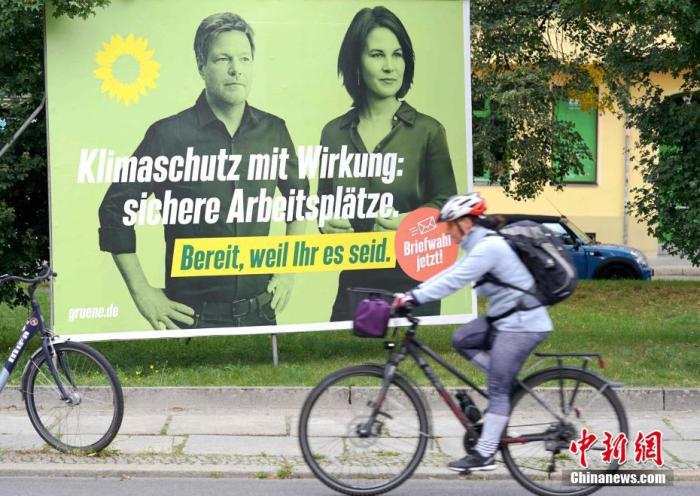China News Agency, Berlin, September 20 (Reporter Peng Dawei) There is only one week left before the German election.
On the evening of the 19th, three candidates for the German general election participated in the last live televised debate before the election.
The real-time poll conducted by the polling agency of the audience showed that the SPD candidate Schultz maintained his advantage after the first two debates, leading the CDU’s Rashet (27%) and the Green Party with a 42% approval rate. Bell Burke (25%).
Data map: On August 26, pedestrians in the center of Berlin passed the election boards of various political parties.
Photo by China News Agency reporter Peng Dawei
The third and final live televised debate before the current election was held that night.
The debate was broadcast by three private TV stations including ProSieben.
The above survey results were completed by the German polling agency Fosa Public Opinion Survey.
During the entire debate, the three candidates engaged in offensive and defensive issues around minimum wages, climate change response, and possible cabinet formation after the general election.
On several issues related to social justice, Scholtz and Bell Burke converged in their positions, while Raschelt was tit-for-tat.
Rashet is the only one of the three who opposes asking employers to raise the minimum wage.
The live televised debate on that day is considered to be the last opportunity for the three candidates to boost their popularity before the German general election on the 26th.
On the 23rd, a debate will be held with the participation of the candidates for the chancellor of all political parties in the German Bundestag.
In the last authoritative poll "Germany Trends" for voters (results on September 16) announced before the general election, the Social Democratic Party still leads the Coalition Party (22%) and the Green Party (15%) with a support rate of 26%. Among other major political parties, 34% of the voters surveyed support that the next government is led by the Social Democratic Party (that is, the prime minister is elected by the party).
The German general election held on September 26 was actually the Bundestag election.
After all members of the new Bundestag are formed, the party with the highest vote rate and the second-highest party need to start negotiations on the formation of a cabinet.
Before forming the next government, Merkel, who has been in power for 16 years, will continue to serve as the caretaker prime minister.
(over)

